calsfoundation@cals.org
Virgil Young (V. Y.) Cook (1848–1922)
Virgil Young (V. Y.) Cook was a veteran of two wars—the Civil War and the Spanish-American War—who founded the town of Olyphant (Jackson County) and eventually accumulated thousands of acres of land, running a vast plantation enterprise in northeastern Arkansas. His home in Batesville (Independence County), today known as the Cook-Morrow House, is on the National Register of Historic Places.
V. Y. Cook was born on November 14, 1848, in Boydsville, Kentucky, to William Detterline (Bill) Cook and Pernecia Dodds Cook. Cook attended subscription schools in Boydsville, obtaining the equivalent of an elementary education.
Kentucky was a divided state in the Civil War, and even though it stayed with the Union, there were many Confederate sympathizers living there. One was fourteen-year-old Cook, who, in 1861, ran away from home to join the Confederate cause. The captain James F. Melton, a friend of Cook’s father, recognized him and asked Bill Cook to retrieve his son. However, Bill Cook, who also had Confederate leanings, ultimately gave in to his son’s wishes and permitted him, along with his older brother Barnett Manly Cook, to join Company E, Twelfth Kentucky Cavalry. They were soon transferred to Company H, Seventh Kentucky Mounted Infantry. Both regiments were under the command of Lieutenant General Nathan Bedford Forrest. Cook and his brother Barnett served with General Forrest until the end of the war, when the men were paroled in Gainesville, Alabama, on May 16, 1865. Cook was still under the age of eighteen when his regiment surrendered.
After the war, Cook set out for Arkansas. Upon his arrival in Grand Glaise (Jackson County) in 1866, Cook reorganized a business his father had established before the Civil War with M. F. Thomason. Under the firm name of Cook & Thomason, the two engaged in a highly successful business enterprise together until 1874, when Cook sold out to Thomason after being offered a railroad agent position with the Cairo, Arkansas and Texas Railroad (CA&T), previously known as the Cairo and Fulton Railroad. The railroad hired him to represent and promote its interests in the construction of a mainline railway from Jacksonport (Jackson County) to Bradford (White County) and beyond, bypassing Grand Glaise.
In 1874, Cook opened a mercantile store in Olyphant, where a new depot was being built, and he was appointed postmaster. He also built a cotton gin in Olyphant in the years that followed, eventually acquiring 8,000 acres in Jackson, Independence, Clay, and Greene counties, of which about 2,000 acres were under cultivation.
Cook married Mildred Ophelia Lamb of Tennessee on June 29, 1871, at Jacksonport. They had four daughters and two sons; one son died in infancy and the other at age seventeen.
The center of Cook’s vast land holdings was in the fertile Oil Trough Bottoms on the White River, where, in 1874, he built a plantation house on 2,300 acres of mainly cotton land that he named “Midland Holm,” commonly referred to as Midland Farm, of which 1,600 acres were under cultivation. The house was located about a mile and a half west of what would become Elmo (now on Highway 14). Most workers on his plantation were sharecroppers and tenant farmers. He provided houses and other necessities for his farm laborers, including seasonal housing for migrant workers, many of whom migrated from the nearby Ozark Mountains. Cook’s bachelor brother Barnett came to live on the plantation at Elmo, dealing mainly in stock, cattle, and horses.
Ten years after founding Olyphant, Cook moved the center of his operations to his plantation Midland Holm, building a gin and a store at the new settlement on White River called Elmo. Biographical and Historical Memoirs of Northeast Arkansas states, “In business Mr. Cook carries a large line of general merchandise, in fact everything that is to be found in a first-class establishment, besides dealing in lands and having an interest in one of the finest ranches in Texas. He has erected a splendid dwelling and several buildings on his Midland farm, and owns a cotton-gin on the same farm that has no equal in Arkansas.”
In 1898, Cook was commissioned a colonel in the Spanish-American War. One company of local patriots called themselves the V. Y. Cook Rifles and was mustered in as Company B, Second Regiment, Arkansas Infantry of U.S. Volunteers. Commander of the Second Regiment was Colonel Cook, who had been commissioned a brigadier general in the Arkansas militia in 1897 by Governor Daniel Webster Jones and placed in command of the northern military district of the state. Promoted to major general in the State Guard, Cook was commissioned a colonel in the U.S. Army as commander of the second regiment.
With three of their four daughters living in Batesville, Cook and his wife decided to move to the city in 1908, where they built a two-and-a-half-story wood-frame home now called the Cook-Morrow House on 875 Main Street. Cook continued to manage his holdings and to be active writing and in other ways promoting Confederate interests.
Mildred Cook died in July 1916, and V. Y. Cook married Sarah B. “Sallie” Lanier of Forrest City (St. Francis County) on April 28, 1920, in New Orleans, Louisiana. They had no children.
Cook died at his home in Batesville on March 12, 1922, and is buried in Oaklawn Cemetery in Batesville.
For additional information:
Biographical and Historical Memoirs of Northeast Arkansas. Chicago: Goodspeed Publishing Co., 1889.
“Gen. V. Y. Cook Dead.” Arkansas Gazette, March 13, 1922, p. 1.
Matthews, Linda. “Cook-Morrow House.” Independence County Chronicle 55 (July 2014): 2–18.
———. “Midland Holm, V.Y. Cook in Oil Trough Bottoms.” Independence County Chronicle 59 (July 2018): 37–53.
McGinnis, A. C. “Farming in Oil Trough, 1904–1960.” Independence County Chronicle 13 (July 1972): 27–39.
———. “A History of Independence County, Ark.” Special issue. Independence County Chronicle 17 (April 1976).
Virgil Y. Cook Family Papers. Butler Center for Arkansas Studies. Central Arkansas Library System, Little Rock, Arkansas.
Kenneth Rorie
Van Buren, Arkansas



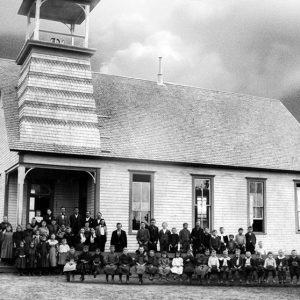 Aydelotte School
Aydelotte School 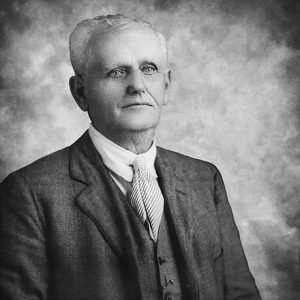 Virgil Y. Cook
Virgil Y. Cook 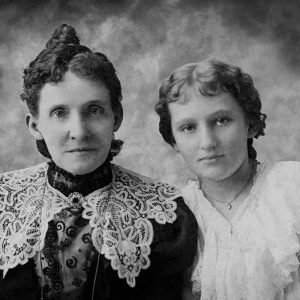 Mildred and Varina Cook
Mildred and Varina Cook 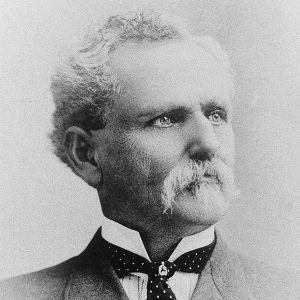 V. Y. Cook
V. Y. Cook 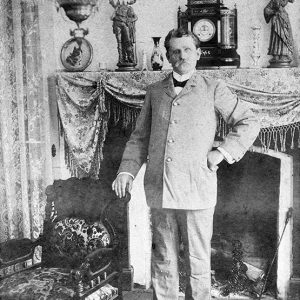 V. Y. Cook
V. Y. Cook 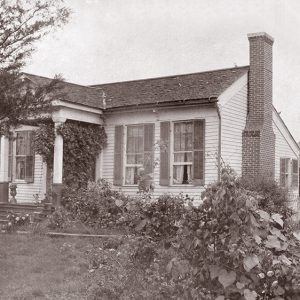 Midland Holm
Midland Holm 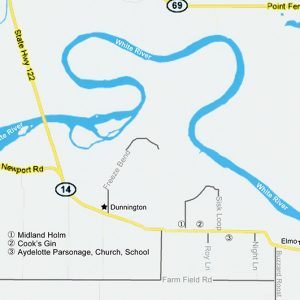 Midland Holm
Midland Holm 



Comments
No comments on this entry yet.